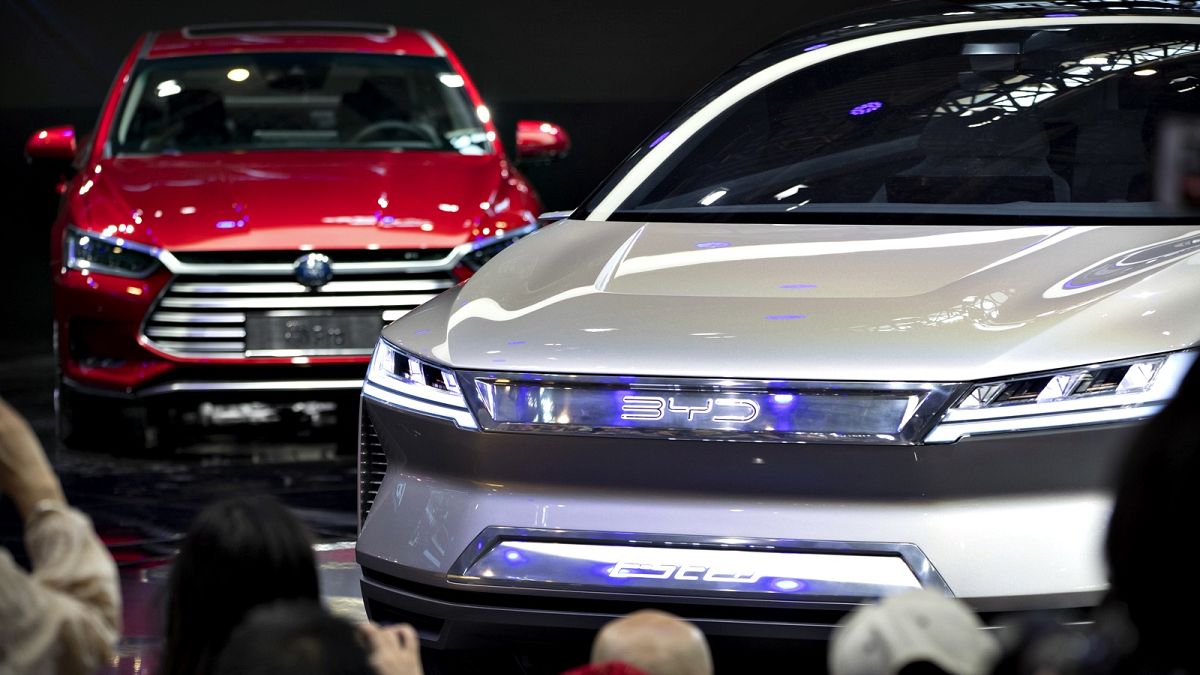Brussels accuses Beijing of giving its carmakers huge subsidies, leading to artificially low prices and unfair competition.
The European Commission has confirmed what seemed a preconceived conclusion: it will impose high tariffs on electric vehicles (BEVs) produced in China from 5 July. This is a major decision that will redefine relations with Beijing and lead to retaliatory measures against European manufacturers.
The move, announced in early June, is the result of a nine-month investigation who found subsidies were pumped into the entire supply chain of BEVs produced in China, by both domestic and foreign companies. Government money was found everywhere, officials said, from the mining of raw materials needed to produce batteries to the shipping services used to bring the finished products to European shores.
The sheer size of the subsidies allows Chinese manufacturers to offer their BEVs at significantly lower prices than those assembled in the bloc, where energy and labour costs are much higher. The price differential has led to a rapid increase in imports of Chinese-made BEVs, from a market share of 3.9% in 2020 to 25% by the end of 2023, the Commission said.
This wave of cheap imports poses a “threat of economic damage” to EU industry, which could lead to devastating losses and put more than 12 million direct and indirect jobs at risk, the executive warns.
Tariffs are therefore necessary to compensate for the benefits of subsidies.
The decision published on Thursday provides for differentiated duties, calculated on the basis of the parent company, annual turnover and the likely amount of subsidies received. These are in addition to the existing rate of 10%.
- BYD: 17.4%
- Geely: 19.9%
- SAIC interest rate: 37.6%
- Other BEV manufacturers in China that participated in the survey but were not individually sampled, including Tesla and BMW: 20.8%
- Other BEV manufacturers in China that did not cooperate: 37.6%
The introduction of the measures will be provisional for now. Customs authorities will require bank guarantees instead of cash from Chinese exporters, meaning end customers may not see an immediate change in their wallets.
Member states will hold a first vote in two weeks, but it is non-binding and serves to test the political waters. The tariffs will remain in place until a final decision is taken in four months, which countries can block if they have a qualified majority against the proposal. (15 member states representing 65% of the bloc’s population.)
Germany, a world-class auto exporter with close ties to the Chinese market, and Hungary, a growing hub for Chinese investment, are among those likely to oppose the initiative, although the number of applications needed to derail it is unlikely to be met.
France and Italy, on the other hand, are in favor of levies.
Meanwhile, Brussels and Beijing will discuss possible solutions that could prevent the permanent introduction of tariffs. The talks will take place at political and technical levels.
“We continue to work intensively with China to find a mutually acceptable solution. Any negotiated outcome of our investigation must clearly and fully address the EU’s concerns and be WTO-compliant,” Valdis Dombrovskis, the Commission’s Executive Vice-President responsible for trade, said in a statement.
Hopes for a breakthrough are slim, however. Beijing has contested the form and substance of the investigation, calling it a “naked protectionist act” that “artificially constructed and exaggerated the so-called subsidies,” and has vowed to “take all necessary measures to vigorously defend the legitimate rights and interests of Chinese companies.”
Last month, China’s Ministry of Commerce launched a anti-dumping investigation in pork imports from the EU, a move widely seen as a harbinger of retaliation. Agriculture and aviation are seen as the sectors most vulnerable to Beijing’s wrath.
On Thursday, a ministry spokesman struck a conciliatory tone: “There is still a four-month period before arbitration takes place, and we hope that the European and Chinese parties move in the same direction, show sincerity and continue the consultation process as soon as possible.”
The anti-subsidy investigation has been described as one of the most far-reaching in recent history and comes at a low point in EU-China relations over a series of disagreements, including Russia’s invasion of Ukraine, tensions in the Taiwan Strait, the repression of the Uighur minority and disinformation campaigns.
The subsidies injected by the Communist Party have been a constant source of friction, with accusations that they decimated the bloc’s solar industry. These memories are still raw in Brussels and weighed heavily on Thursday’s decision.
“We have not forgotten how China’s unfair trade practices have affected our solar industry. Many young companies were chased away by heavily subsidized Chinese competitors,” Ursula von der Leyen said in September when she announced the BEV investigation.
“That’s why fairness in the global economy is so important – because it affects lives and livelihoods. Entire industries and communities depend on it. So we need to be clear about the risks we face.”
